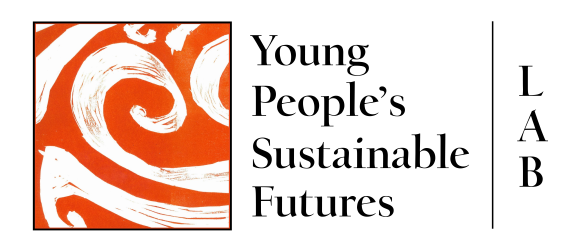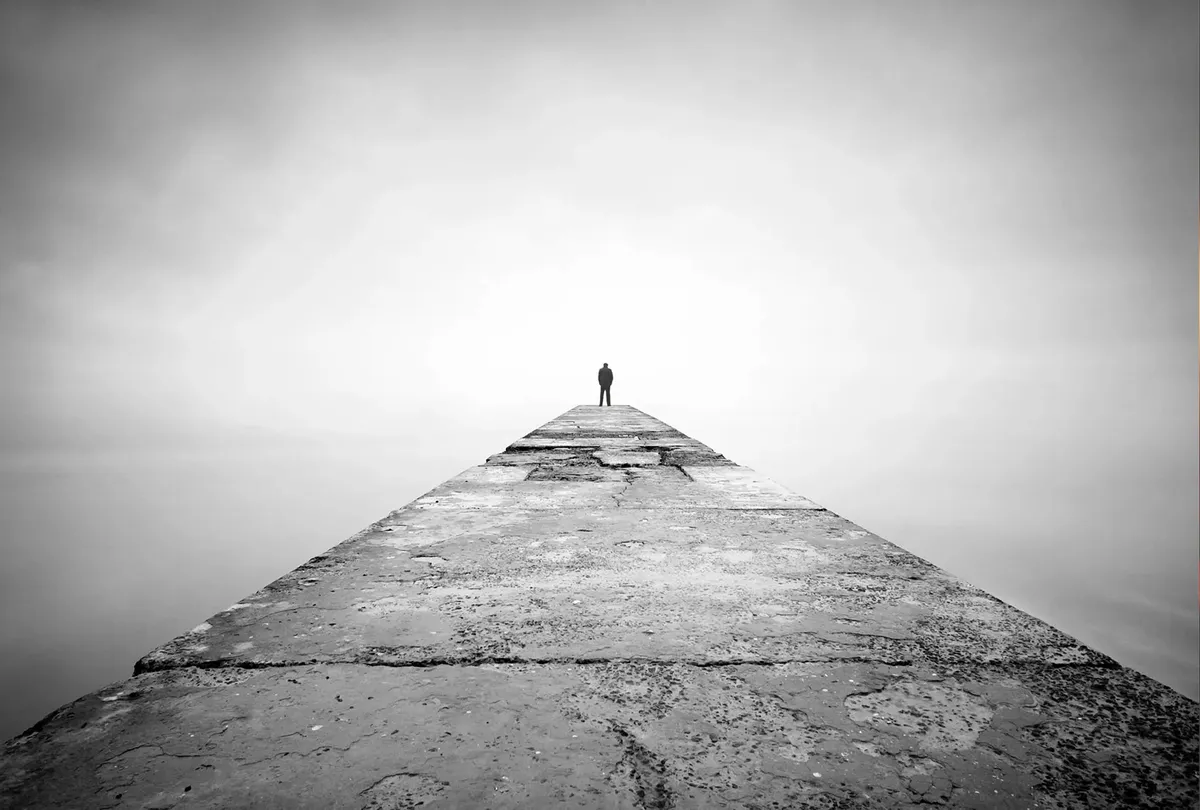
In this blog I want to pick up on a number of threads from two recent blogs. In the most recent blog Against Optimism, my aim was to think about what the vast amount of evidence of humankind’s history of seemingly endless capacity for irrationality, greed, violence, hatred, intolerance, prejudice, and bigotry, and continued inaction in the midst of the crises of climate, mass extinction and capitalism, means for the very idea of human progress and the suggestion that it bends towards justice.
In Generation Dread: Young People’s Mourning for Futures Lost I explored a range of emotional responses that are widespread in the context of individual and collective mourning for those things – species, climate conditions, eco-systems, biomes – that we are losing, or are at risk of losing, as the Holocene collapses.
In both these blogs I referenced work that we have done in the YPSFL that seeks to move beyond a naïve, even simplistic attachment to the promise or challenges of optimistic and/or pessimistic dispositions to the many crises that characterise our times, and to think of actions and orientations to pasts-presents-futures in terms of a ‘radical politics of hope’.
Following Rosi Braidotti (2013, p.192), we have suggested that a politics of hope emerges in our imagining of the future as “an active object of desire”, an object that “propels us forth and motivates us to be active in the here and now”. In this sense, hope can be conceived as an “anticipatory virtue that permeates our lives and activates them”. The anticipatory and active dimensions of this politics are animated and guided by an affirmative ‘posthuman ethics’ (Braidotti 2013).
In this blog, I want to introduce an essay, The Hope of Public Philosophy, by Yarran Hominh in The Philosopher, the journal of the Philosophical Society of England.
What is of interest in this essay, is Hominh’s suggestion that we move from thinking of hope as a futures oriented, object or outcome focused disposition. And to imagine hope as something that we invest in others, and in the possibilities of our relationships with others.
My sense is that this is something that we routinely do, but which we don’t think of explicitly in these terms. Nor do we often consider what it might mean to think of hope in these terms, and how thinking of hope in these ways might guide collective responses to the ‘hopelessness of our times’.
We live in times of hopelessness
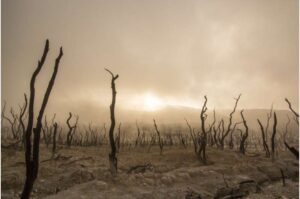
We live in times of hopelessness. The social systems that we have built and in which we live are failing us. They condemn us to lives, at best, of meaningless labour – at worst, of suffering and domination at the hands of others. We are simultaneously destroying the earth systems on which these human social systems rely and with which they are entangled. Human life and more-than-human life are in tandem being laid to waste.
It is not only that we are burning the world and denuding human existence. The real cause of hopelessness is in the fact that the possibilities for change are slim. The same global social systems of capitalism, patriarchy, racism and extractive neocolonialism that are the source of these depredations lock in the direction we are heading. They foster in us human tendencies that make it difficult for us to see the problem, let alone respond properly to it: a self-interested love of self that blinds us to what we wreak, a close-mindedness to alternative possibilities, an addictive dependence on the “value” that we extract from the earth, a disregard for others and for ourselves, a need to dominate and feel superior to others. These ways of relating to ourselves and the world render us almost powerless to resist those forces that careen us toward destruction. Yarran Hominh, The Hope of Public Philosophy
Yarran Hominh is an Assistant Professor of Philosophy at Bard College in New York state. His philosophical and political interests lie in exploring ‘how modern social and political institutions shape human agency, and how human agency can in turn be used to change those institutions’.
It is from this position that he makes a distinction between the subjective and objective aspects of hopelessness, and the contribution that philosophy – which he suggests has been most interested in the subjective dimensions of hopelessness – can make to addressing the more objective characteristics of hopelessness.
For Hominh:
Subjectively, hopelessness appears as a shrinking of possibilities, as a loss of our capacity to imagine what it might be to live well into the future. What we do ceases to have meaning for us, for what meaning can the present have where there is no liveable future?
In making this point – and illustrating this condition through a discussion of the sense of hopelessness experienced by those who suffer from depression – he also argues that ‘the generalised condition of hopelessness we face is not just a subjective feeling’.
Indeed, to
live in hopeless times is…not only subjectively to feel hopeless. It is for that feeling in a real way to reflect the way things are. The social systems we have created and that are threatening the possibility of human life outrun us. We appear incapable of transforming, for the better, what we have already built.
Philosophy as Consolation
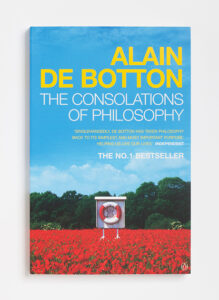
In this context Hominh references that ways in which various philosophical traditions and schools have provided diverse ‘means of dealing with despair’, with the subjective dimensions of a sense of hopelessness. As an orientation to philosophy, this approach ‘aims to help people cope with despair through a practice of philosophising that brings the practitioner to a higher state of being’. As a practice it ‘changes the self, renders it more capable, more active’.
As Hominh observes, ‘consolation only deals with the subjective side of hopelessness’. And in adopting this form of practice, ‘leaves the underlying objective conditions untouched’.
I don’t mean to deny that philosophy-as-consolation may be of great help to many. But only political action – by which I mean collective action together with others – will help us deal with the objective conditions of hopelessness. We need not just a means of coping, but some means of social change.
Philosophy as Liberatory Practice
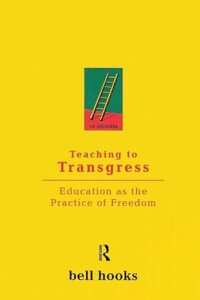
I came to theory because I was hurting – the pain within me was so intense that I could not go on living. I came to theory desperate, wanting to comprehend – to grasp what was happening around and within me. Most importantly, I wanted to make the hurt go away. I saw in theory then a location for healing. bell hooks Teaching to Transgress: Education as the Practice of Freedom
Citing the work of bell hooks, Hominh suggests that ‘theory as liberatory practice’:
is a way of doing theory that is tied to the actual problems people face. It is a form of theory that begins in consolation. It can help people see things differently. Yet it goes beyond consolation to help people do things differently, and for this difference to spread more widely.
When philosophy becomes, or aspires to be, a form of liberatory practice, it:
arises from the struggle. It does not begin in the academy, but in the streets, in the jails, in the agorae and in the workplace, wherever people have the possibility to meet to make change. It is a form of creating knowledge tied to action, and of more directly creating action. This form of “public philosophy” is embedded in the discussion group, the town hall, the union meeting, the protest and the rally, in the conversations that we have with each other.
It is in this sense, as Hominh argues, that ‘philosophy as liberatory practice embodies a practice of hope’.
Hope in Other People
Which brings us to the point of exploring this other dimension of hope, the possibilities that arise if we start to imagine that hope is something that can be invested in others, and/or which arises in the contexts of our relationships with others:
Public philosophy in this sense is a way of placing hopes in others. This is not just a belief; say the belief that we, together, can change the world. It is a practice of shaping ourselves in collectivity with others so that we are able to change the world. It is a practice of solidarity and care, of building the conditions for collective agency, collective understanding, and collective power.
Hominh wants to make a number of distinctions between this idea of hope in others, and other forms or practices of hope. First, hope in others ‘does not rest on any shared vision of the future’. As he observes, when we normally think of hope we imagine:
some desired but uncertain future end. I hope that I will one day be able to afford a house. I hope that we will someday be able to live well. I hope that the world does not burn. These are hopes that may seem utopian, ideal – beautiful, but unachievable. (I know that I will never be able to afford a house.)
As Hominh suggests, it ‘is not clear how these hopes, even if valuable, can form a practice, other than one of wishful thinking or of the new-age attempt to manifest one’s desires’.
Hope in others, by contrast, is not primarily future-oriented. It is present-oriented. We shape ourselves in conjunction with others in the here and now. We lay our hopes in what we and others can do and become together in the present, not in some dreamed-for-future.
The other distinction he makes, is that in the way of understanding hope, ‘the object of this hope is not the world, but other people’. Here, citing Hannah Arendt’s claim that one feature of ‘the human condition’ is ‘that it is characterised by natality – the power of creation, of giving birth to something new’ – Hominh observes that:
Hope in others is a recognition of that power of human agency, as against the systems and structures that choke us and constrain us. If the state of the world makes certain possibilities unimaginable, hope in others allows us to imagine again, together with those others.
A Politics of Hope…in Others
Hope in others is no guarantee. It cannot be, because to guarantee a result is to aim at a future goal and to predict successfully what is needed to achieve that goal. Hope in others does not aim at any particular future goal. And to treat others in the mode of prediction is not to treat them as agents capable of saying and doing things anew. If hopelessness consists in the impossibility of imagining a future, then hope in others side steps that impossibility by focusing on the present, on the capacities of those who inhabit that present with us. (Yarran Hominh, The Hope of Public Philosophy)
I am still trying to work through what this understanding of hope in others offers for imagining how we think about, respond to, and act in relation to those circumstances, challenges and crises that characterise the hopelessness of these times. After all, hope in others can, in a very general, everyday and common sense way, be ‘misplaced’ or misguided’ – something that we may all have some experience of.
At the same time, hope in others is prefigured by matters, questions, and theories of ‘trust’. Sociologists such as Anthony Giddens and Ulrich Beck – in thinking about the manufactured, human-produced uncertainty that characterises processes of reflexive modernisation – have developed and made productive distinctions between ‘basic trust’ (of the sort that new-borns must develop in their care-givers) and ‘active trust’ (of the sort that means I will board a really complex technology like a modern passenger jet without understanding the principles of physics, aerodynamics and jet propulsion) as a way to think about contemporary forms of self-identity.
And, I would want to hang on to, and think with, the possibilities that come from exploring the distinctions between optimism, pessimism and hope in relation to our pasts-presents-futures.
But, I think there is something productive at play in the ways in which Hominh articulates and distinguishes between hope as a futures oriented disposition, and as something that we invest in others, and in the possibilities of our relationships with others. What this might be, and why this might matter, resonates with the things that many young people who have participated in various YPSFL projects talk about in discussing the often profound importance of the relationships that they have, and value, with parents and guardians, teachers and support workers, siblings, friends and co-workers – and the ways in which these relationships provide particular orientations to their hopes and aspirations.
One of those young people was Emilie who – when she spoke with us during 2021 and 2022 – was in her early 20s and living in a share-house with friends, studying criminology and social work, and volunteering with the youth service provider Headspace and Girl Guides Australia in Geelong (AUSTRALIA). In one of interviews Emilie recounted a key moment in her life, a moment that points to what can be productive from thinking of hope as something that comes from and shapes our relations with others.
At about 13 or very young age, I began rebelling for absolutely no reason.
I had a very privileged life, and I was surrounded by a lot of love and support. But for some reason, I was drawn to the bad kids.
I was partying, drinking, smoking, drugs, stealing, skipping school, getting suspended. It was not a good time in my life.
Around that time, my stepdad got offered a five year contract for a job in America.
We were out for lunch when he told me about the opportunity.
He said, I want to take this because you are worth so much more than the path you’re going down.
He basically explained that I will get stuck in this lifestyle, and not many people get offered a second chance so early on in their lives.
We moved to America. I was enrolled in a pretty strict Catholic school. It was crazy at first. I didn’t really know if I wanted to accept what was happening. It was without my family and friends. It was hard.
Anyway, basically I did get my life back on track.
I committed to my studies, I did so well in school, and I finally began to see what my parents saw in me.
